By Richard Hakim/ Penplusbytes
As Côte d’Ivoire readies itself for a
consequential presidential election on 25th October 2025, the political atmosphere
is fraught with tension and apprehension. With legal manoeuvres,
disqualifications of heavyweights, and the entrance of unexpected contenders, and
a history of political violence, the stakes have never been higher. Below, we
explore the profiles of the candidates in this crucial election.
Alassane Dramane Ouattara
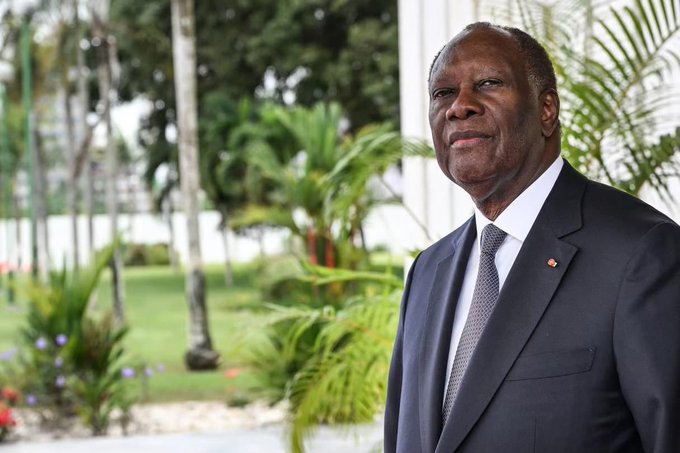
Born in 1942, the seasoned economist turned
president seeks an unprecedented fourth term in a political environment shaped
by his long tenure. His supporters tout him as the steady hand, citing
macroeconomic stability, debt management, and infrastructure scale-up under his
watch. However, critics view his continued candidacy as a test of constitutional
integrity, especially since his prior run in 2020 was already controversial
(with Ouattara’s camp arguing that a 2016 constitutional reform reset term
limits).
In July 2025, Ouattara publicly announced
his intention to run
again, citing citizen appeals and national continuity. His proponents argue
that in a region beset by volatility, his experience is essential. Opponents
argue that power consolidation and the exclusion of opponents
risks creating cracks in Côte d’Ivoire’s democracy.
His campaign has leaned heavily on his
record, including large-scale road programs, expansion of the electric grid,
and strengthening of fiscal buffers. Yet the question remains, can he deflect
mounting demands for inclusion, youth employment, decentralisation, and broader
judicial reform?
A major challenge for him is balancing
stability with responsiveness. In a country where one half yearns for
continuity and the other for change, Ouattara must persuade those skeptical of
power endurance that his fourth term is not a betrayal of democracy but a
bridge to a more inclusive future.
Simone Ehivet Gbagbo
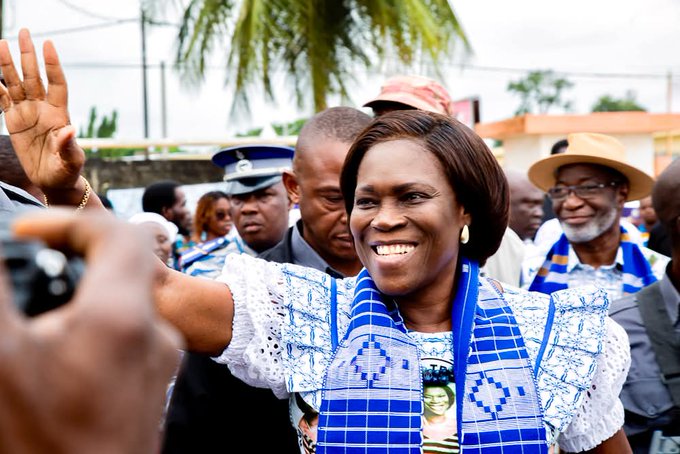 Credit: AIP/X
Credit: AIP/X
Once known predominantly as the spouse of
Laurent Gbagbo, Simone Ehivet Gbagbo has recast her role as a contender in the
2025 elections. Born in 1949, she is a veteran of Côte d’Ivoire’s divided
politics, having been First Lady from 2000–2011, a parliamentarian, union
activist, and ideologue within the Ivorian Popular Front (FPI).
Her candidacy carries heavy symbolism and
risk. On one hand, she may consolidate parts of the pro-Gbagbo electorate disjointed
by her husband’s disqualification. On the other, she must address the legacies
of conflict and her own past legal entanglements.
Gbagbo campaigns with a focus on national
reconciliation, social justice, and a return to sovereignty.
Whether she emerges as a serious challenger
or a symbolic contender depends heavily on her campaign’s organizational reach
and messaging discipline.
Jean-Louis Billon
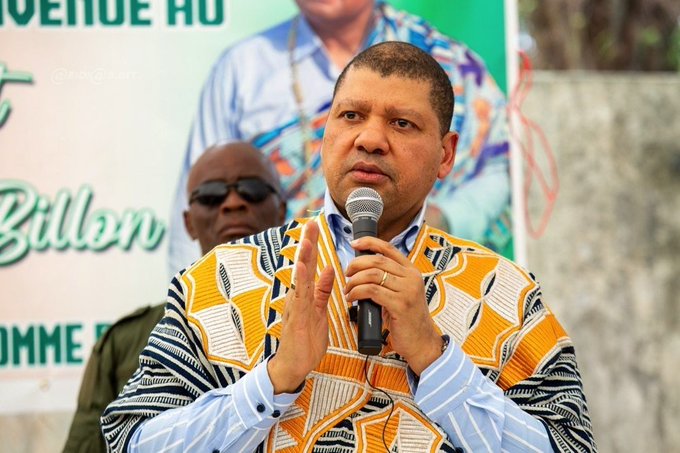
Jean-Louis Billon is a technocrat turned
political entrepreneur. Originally associated with PDCI
circles, Billon has increasingly distanced himself from that traditional
base to position himself as a modern candidate. His background in agribusiness
(with family ties to large agro-industrial interests) gives him both
credibility in the private sector and exposure to elite networks.
Billon’s platform emphasises diaspora
engagement, dual nationality reform, and accelerating decentralisation to
reduce Abidjan’s dominance in local governance. But he also faces the daunting
task of building a pan-Ivorian coalition without the full backing of PDCI
machinery, especially after Tidjane Thiam’s disqualification
His appeal lies in being a “breath of fresh
air” candidate, neither steeped in old patronage politics nor entirely
untested. Yet questions persist, can he scale mobilisation across rural areas?
Ahoua Don Mello
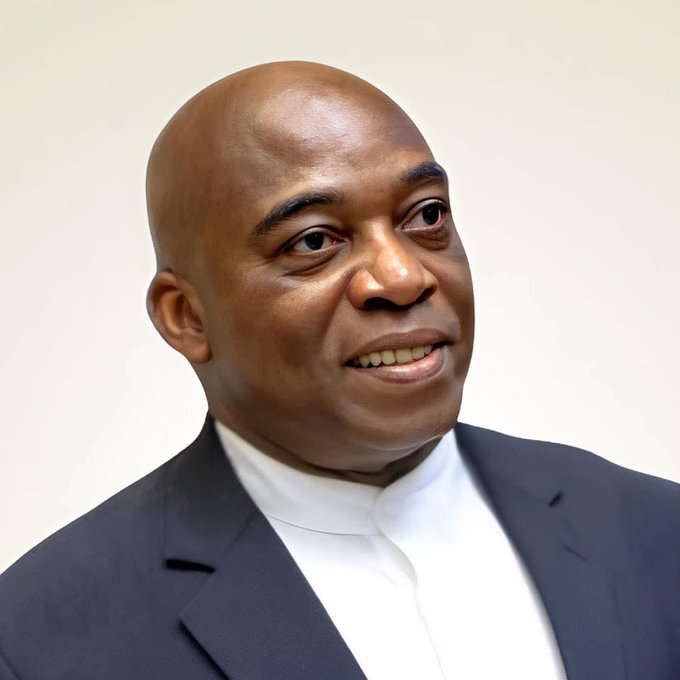
Ahoua Don Mello is the candidate with an
agenda centred on strategic autonomy, industrial policy, and recalibrated
international alignments. Though less well-known than the top names, he brings
a disciplined policy orientation. His prior roles in government and planning
lend technocratic legitimacy.
Don Mello argues that Côte d’Ivoire must move
beyond raw commodity exports, build regional value chains, deepen
public-private partnerships in infrastructure, and revise agreements unfavourable
to national sovereignty. He challenges the assumption that foreign investment
must always drive development. However, critics question the financial
viability of some of his ambitious proposals, especially in the face of debt
constraints and investor wariness.
Henriette Lagou Adjoua
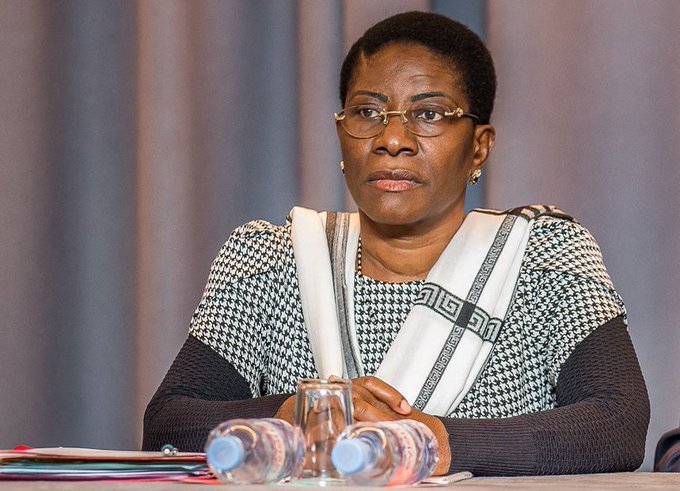
Henriette Lagou Adjoua is a lesser-known
face in this high-stakes election. Long associated with PDCI
and allied political circles, Lagou has also cultivated civil society
credentials, especially in women’s advocacy and local governance.
She frames her platform around inclusion,
integrity, and social equity: prioritising maternal and child health, early
education, vocational training, and decentralisation.
Côte d’Ivoire’s 2025 presidential election is a litmus test for the maturity of its democracy, and the legitimacy of its institutions. The exclusions of heavyweight rivals like Laurent Gbagbo and Tidjane Thiam have compressed the political field and amplified the spotlight on those who remain.
Editing by Peter Agbesi Adivor
Africanelections.org

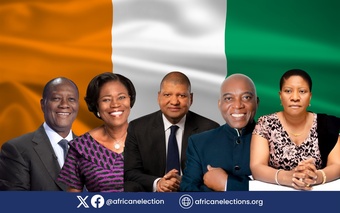
 Take Voters' Compass
Take Voters' Compass